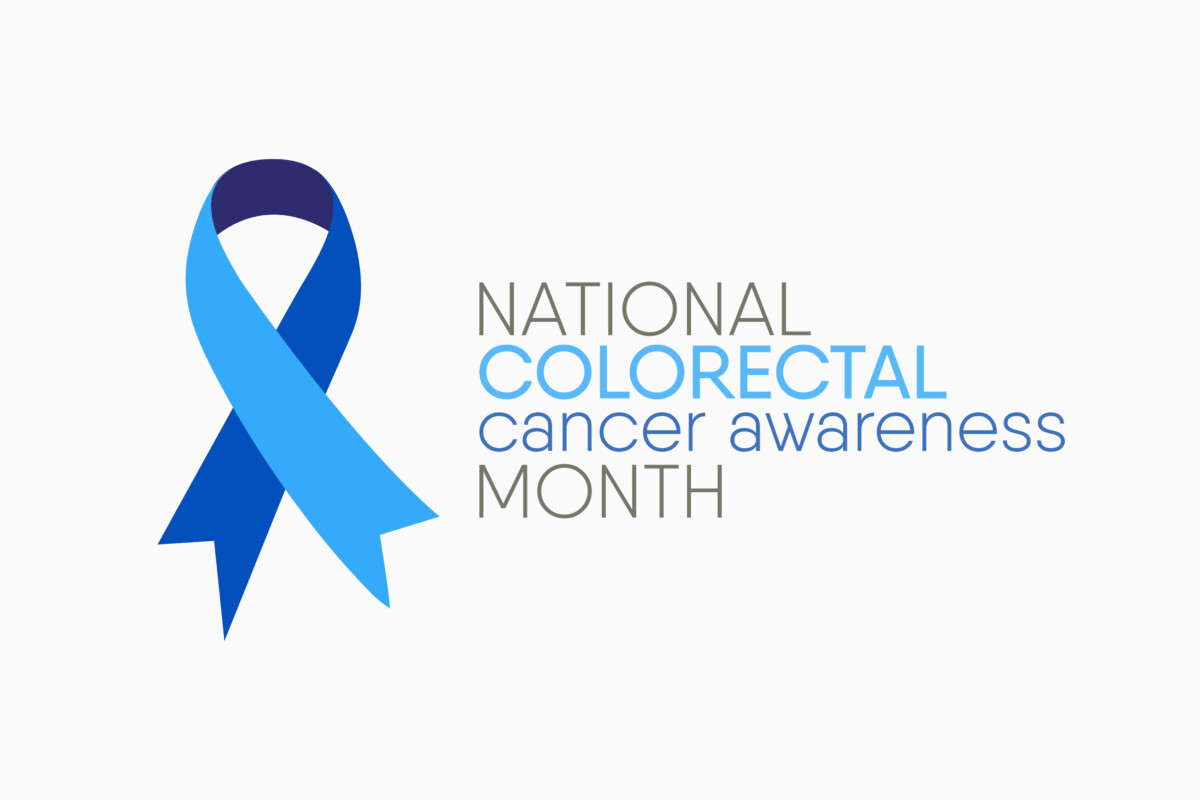Colorectal Cancer: A Silent Killer

March is Colorectal Cancer Awareness Month. As with all cancers, the sooner colorectal cancer is found and treated, the greater the chance that treatment will be successful. On the other hand, the longer the cancer grows without being discovered, the less likely the chance that it can be treated successfully.
What is a cancer screening?
A screening test is a test that is done to check for disease in someone who has no symptoms. The more serious the disease, the more important the screenings. Since colorectal cancer is the second leading cause of cancer deaths in the US, screening tests for it are recommended for everyone of a certain age.
When do we need a screening?
As we get older, our risk of getting cancer increases. Colorectal cancer is unusual in patients under age 50, so screenings are recommended beginning at age 45 or 50. Some people should be screened even sooner. This is true of people who have a family history of colorectal cancer
What screening tests are available?
There are multiple screening tests for colorectal cancer, but the most reliable test is a colonoscopy. A colonoscopy allows a doctor to look directly at the lining of the colon, or large intestine, to check for growths. The doctor looks for cancerous growths and polyps, or precancerous growths. If either type of growth is found, the doctor will remove it. (If a polyp is not removed, it will eventually turn into cancer.)
In order to have a colonoscopy, patients must be put to sleep with a general anesthesia. The procedure does not, however, require an overnight stay in the hospital.
While there are other tests that allow the doctor to look at the inside of the colon, the colonoscopy is the most reliable. It only has to be done every ten years.
The second category of screening test is a stool test. Stool tests check for blood in the stool, or poop, of the patient. If these tests find any blood, then the patient will be given a colonoscopy.
Lastly, there are two other types of screening tests that are rarely used: a stool gene test and a colorectal cancer blood test.
What are the symptoms of colorectal cancer?
Colorectal cancer is called the “silent killer” because it often does not have any symptoms. When there are symptoms, they may include:
- Nausea and vomiting
- Weight loss without any apparent reason
- Rectal bleeding
- Being tired without any apparent reason
- Blood in the stool
- A change in bowel habits
- Cramps or bloating
- Gas pains
- Narrow stools
Who is at greatest risk?
Not everyone has an equal risk of getting colorectal cancer:
- Men are more at risk than women.
- African Americans and Hispanics are more at risk than non-Hispanic whites.
- Alaska Native Women have the highest mortality rate of all from colorectal cancer.
- Women with a history of endometrial, ovarian or breast cancer are at higher risk than other women.
- Those with a history or family history of inflammatory bowel disease are at higher risk than those without this history.
- Men with obesity have a 30-70% greater risk of developing colorectal cancer than those without obesity.
How can we reduce our risk?
It is extremely important to get regular screenings for colorectal cancer. Unlike other cancer screenings, colorectal screenings can detect cancer before it appears, in the form of polyps. This means that colorectal cancer screenings not only help with early detection, they also help with cancer prevention.
- Get plenty of exercise. The standard recommendation for health, in general, is a minimum of 150 minutes a week of moderate intensity exercise.
- Eat a low-fat high-fiber diet.
- Eat plenty of fruits and vegetables.
- Avoid processed meats.
- Drink only in moderation.
- Maintain a healthy weight.
What Are the Risk Factors for Colorectal Cancer? | CDC
